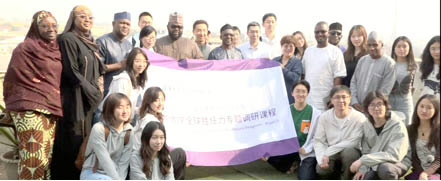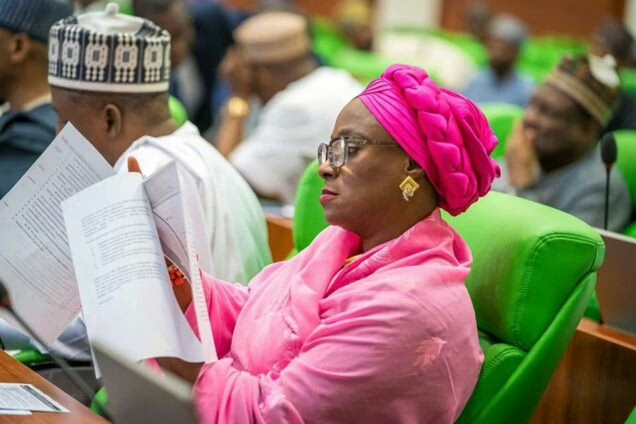Yes, there are two ways you can look at it; there is a huge migration of people moving from one place to another, migrating from one city to another. So, obviously, there is a huge demand. Development is happening all around, and the first impact happens in the big cities so obviously everybody gets attracted to it. For example, Lagos is a classic example. There are not many opportunities surrounding small towns. So, the population finds it difficult to have amenities, and people start moving towards cities. This trend is not for one particular city or geographical area; it is common all over the world. If you look at it from an overall perspective, more than 50 per cent of the world’s population will be leaving, having a serious impact in terms of housing and things like this have had a direct impact on the number of residential buildings or commercial buildings which have matched the requirement.
There are a lot of people in the cities and unemployment as well; hence every city has to get up to give welfare support to people living in cities, installing basic amenities. Also, they need to develop some of these small towns and cities to stop endless migration, because when they don’t have facilities or proper job opportunities, they tend to migrate. Housing is the biggest problem in Nigeria because residential takes up the first part when people come to cities. On the climate impact aspect, it is not a good sign and it is a bit negative as it is going to increase the carbon emission which causes pollution. However, on the positive side, it also brings a lot of employment. At this point, we all know the leaders of the countries are thinking of developing new cities instead of loading people without shelter into homes where infrastructure can support the influx of people.
It is the role of both the federal and state governments to step in and help the industry to grow, particularly in the mass housing scheme, scaling it to a larger scale. The government can take care of some of the funding requirements of these projects and work hand in hand with stakeholders in the real estate industry because when there is a financial closure, the risk can be a bit minimal. Also, the cost of building projects should be more realistic. Going forward, the government needs to give room for investment, which should be aimed at manufacturing building materials locally, rather than importing. Most importantly, the government needs to support the industry with adequate funding so that the industry can thrive.
The development of technology has really advanced because we can see all the development happening in cities becoming megacities and so on. The first and basic requirements are water and electricity, which forms the basis for someone to live in a place. Lagos should adopt these solutions because preserving valuable water resources is the best way to minimise the stage of such resources to become more effective. Technology is coming in such a way that we can maximise the available water, for example, sewage water from an apartment can be efficiently reused maybe the same water may not be potable for drinking but it can be used for other purposes like flushing out your toilets, for gardening purposes, all the remaining services except drinking water can be used. So, it means it can be recycled. This is what we call recycling. The concept is more advanced to do the recycling capability.
It is a major reason for the slowness of real estate development; we import over 80 per cent of the service requirement today. Obviously, they get impacted by the fluctuation of currency. Hence, all building materials are being imported, and directly, they get affected by currency fluctuations.
Green buildings play a role in the advanced world which is making sure the buildings are approved and constructed to green building standards. Green building standards are basically the minimal usage of electricity, water, and all those services that entail billing. Hence, you are reducing the impact of what is going to happen to the environment. For example, if you want to reduce a lot of electricity use, which means your lighting, should come down drastically. The building has to be designed in such a way that it has to use a lot of natural lighting so that it saves a lot of power. For example, even if you need to power those buildings, you can use what is called solar energy which may be on the roof or on the side of the building depending on the space availability so these will compound safe energy use. Solar energy is green energy; it comes directly from the sun and can be converted to light. So, you can compensate and maybe use a 30-40 per cent requirement.
Nigeria has to follow this recognised standards set because there is a lack of requirements for basic building needs in the country, and we know there is also a lot of power deficit. So, we need to look for alternative sources. This is where those solutions will play a role in terms of minimising these impacts as we move forward in the construction industry and make more and greener buildings normal so that the consumption of power is reduced. For example, because of the non-availability of power, people tend to run generators, and once you turn on generators, you are polluting the environment. Nigeria has to think about it as few buildings have started moving towards natural lighting and the natural breeze coming into the buildings. So, they minimise the usage of air conditioners and these things are positive ways to solve the power deficiency.
Also, housing being the biggest deficiency for Nigeria today needs to improve as the majority of the population is not in good condition, and the reason is that there are very few accommodations available for people to live in at an affordable price. The more unaffordable it is, the more difficult for people. Importantly, the cost of buildings has to come down, and in respect of green buildings, you’re not spending too much on the building because you are trying as much as possible trying to use natural lighting. This also will enable people to buy and lease into that kind of advanced building standards, hence it is a win-win situation. In Lagos for example, 15 years back, particularly the Lekki axis today, the city has gone far and wide because there is a huge demand for housing and commercial buildings, the corporations need to come together to build what is called affordable housing, which essentially is always the need not the luxury house. The rich can afford to have luxury houses. However, it is affordable housing that will solve the problem of the housing deficit.











